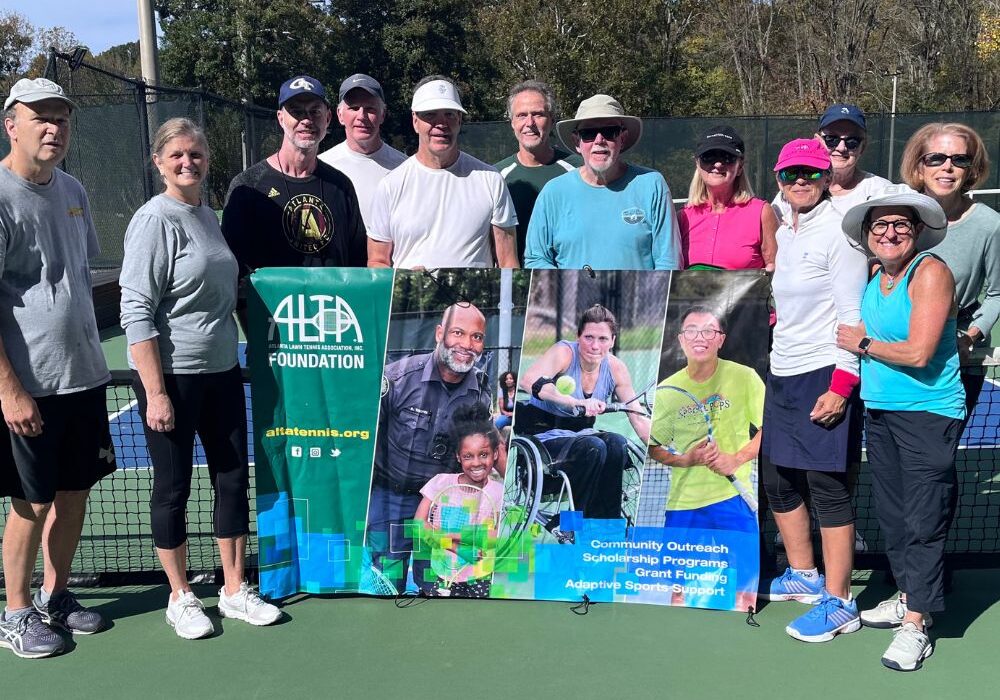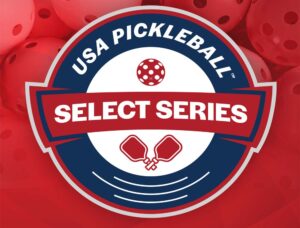For Those With Parkinson’s, Pickleball Can Be An Ideal Sport
By Bob Reinert
Red Line Editorial
Parkinson’s is called a “snowflake disease” because no two snowflakes are alike, and neither are the ways the disease affects different people.
According to the Parkinson’s Foundation, the neurodegenerative disorder affects 10 million people worldwide. Symptoms usually develop slowly and may include tremor, slowness and paucity of movement, limb stiffness, and gait and balance problems.
What all those affected by Parkinson’s share is a need for movement.
To slow disease’s progress, the Parkinson’s Foundation recommends exercise programs that incorporate aerobic activity, strengthening exercises and stretching.
As it turns out, pickleball can provide just the type of exercise many with Parkinson’s need.
Ellen Bookman is one of more than 200 members of the Atlanta-based Center for Movement Challenges, or CFMC, an organization that focuses on helping those with Parkinson’s and multiple sclerosis, as well as veterans. She’s among those who are convinced that pickleball is an ideal match for many people with Parkinson’s.
“There are certain things that a lot of different people have, but no two people are exactly the same within their own diagnosis,” Bookman said. “A lot of people lose their balance, and people shuffle. Not everybody could play pickleball, but a bulk of people could.”
Bookman speaks from experience. She’s among a group of women and men with Parkinson’s that has found a way to impose a temporary thaw on the disease by taking to the pickleball courts at Sandy Springs Tennis Center in Atlanta each week.
“It’s about the exercise,” said Bookman, “but it’s also about camaraderie, socialization, being together, outside of the Center.”
Bookman said that when her group — nicknamed the “Parkie Picklers” — is on the pickleball courts, players can set aside their disease for a few hours while focusing on a sport that addresses the issues that they face each day.
“With Parkinson’s, it’s about balance, it’s about muscle movement,” Bookman said. “When they get out there, it’s like they don’t have the symptoms. You have to think through a process. You have to pay attention to what your surroundings are.
“Your symptoms don’t go away. It’s a lot about the mental wellness side of it. When you get out there, and you’re playing, and we’re happy, it’s not that our symptoms disappear. For those two hours, you just forget. It’s not gone, but it’s kind of cathartic.”
The Atlanta Lawn Tennis Association Foundation recently recognized the value of the Parkie Picklers by awarding them a grant that the group used for a pair of clinics at Sandy Springs.
“It’s just amazing,” Rita Maloof, ALTA Foundation president, told Atlanta News First in a recent broadcast. “These are amazing people and amazing athletes, and to be able to help them get out of their houses and participate in healthy activities just warms your heart.”
Day’Troy Lyons-Lee, program director at CFMC, told Atlanta News First that it’s all about bringing normalcy back into people’s lives and connecting them through sports with others who are going through similar challenges.
“Things like boxing and pickleball, they help so much with balance, focus, hand-eye coordination,” Lyons-Lee said. “Ultimately, what we’re trying to do is slow the progression of the disease.”
Bookman said the clinics brought the group “back to the basics of pickleball. It was really fun, it was really educational, and (it) just felt really good after we all left the court.”
That was the experience for Kim Faison, another player in the Atlanta group, as well.
“We have pictured ourselves going out there falling all over the court, but it’s been great,” Faison told Atlanta News First. “It’s been a good confidence-builder for me, and I think for all of us.
“You’re so focused on what you’re doing that it’s hard to be affected by anything around you. Just mainly joy. It’s just fun.”
Bob Reinert spent 17 years writing sports for The Boston Globe. He also served as a sports information director at Saint Anselm College and Phillips Exeter Academy. He is a contributor to USA Pickleball on behalf of Red Line Editorial, Inc.





